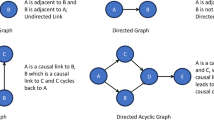Abstract
In response to the Fukushima Dai-ichi accident, the Nuclear Energy Institute developed guidance for establishing flexible coping strategies for beyond-design-basis external events (BDBEE). These coping strategies, termed FLEX, consist of additional equipment and procedures to safeguard the plant in the event of a BDBEE. Little research has been performed to model the FLEX activities with dynamic human reliability analysis (HRA). The research described here sought to build an HRA model of FLEX activities for a station blackout event, add dynamics to the model using the GOMS-HRA method, and evaluate the feasibility and ease of building the dynamic model within an existing dynamic PRA tool called Event Modeling Risk Assessment using Linked Diagrams (EMRALD). The modelling effort was successful in building a dynamic HRA model of FLEX activities within the existing dynamic PRA tool and highlighted several potential improvements to enable EMRALD to better incorporate HRA more effectively within its framework.
Access this chapter
Tax calculation will be finalised at checkout
Purchases are for personal use only
Similar content being viewed by others
References
NEI: Diverse and Flexible Coping Strategies (FLEX) Implementation Guide. NEI 12-06, Rev. 4 (2016)
Boring, R.L., St. Germain, S., Banaseanu, G., Chatri, H., Akl, Y.: Applicability of simplified human reliability analysis methods for severe accidents. In: 7th International Conference on Modelling and Simulation in Nuclear Science and Engineering (7ICMSNSE), Paper 98, pp. 1–11 (2015)
Park, J., Jeon, H., Kim, J., Kim, N., Park, S.K., Lee, S., Lee, Y.S.: Remaining and emerging issues pertaining to the human reliability analysis of domestic nuclear power plants. Nuclear Eng. Technol. 51, 1297–1306 (2019)
Reid, M.: Human reliability assessment for ‘Flex’ equipment. In: Proceedings of the Probabilistic Safety Assessment and Management Conference (2018)
EPRI: Human Reliability Analysis (HRA) for Diverse and Flexible Mitigation Strategies (FLEX) and Use of Portable Equipment: Examples and Guidance, EPRI 3002013018. EPRI, Palo Alton (2018)
Kichline, M.: Human reliability analysis for using portable equipment. In: EPRI FLEX Workshop (2018)
Boring, R.L., Rasmussen, M.: GOMS-HRA: a method for treating subtasks in dynamic human reliability analysis. Risk, reliability and safety: innovating theory and practice. In: Proceedings of the 2016 European Safety and Reliability Conference, pp. 956–963 (2016)
Boring, R.L., Rasmussen, M., Ulrich, T., Ewing, S., Mandelli, D.: Task and procedure level primitives for modeling human error. Adv. Intell. Syst. Comput. 589, 30–40 (2017)
Ulrich, T., Boring, R.L., Ewing, S., Rasmussen, M.: Operator timing of task level primitives for use in computation-based human reliability analysis. Adv. Intell. Syst. Comput. 589, 41–49 (2017)
Prescott, S., Smith, C., Vang, L.: EMRALD, dynamic PRA for the traditional modeler. In: Proceedings of the 14th International Probabilistic Safety Assessment and Management Conference. Los Angeles, CA (2018)
RELAP5-3D Code Development Team: RELAP5-3D Code Manual Volume I. Idaho National Laboratory, Idaho Falls (2018)
Acknowledgments
This work of authorship was prepared as an account of work sponsored by Idaho National Laboratory, an agency of the United States Government. Neither the United States Government, nor any agency thereof, nor any of their employees makes any warranty, express or implied, or assumes any legal liability or responsibility for the accuracy, completeness, or usefulness of any information, apparatus, product, or process disclosed, or represents that its use would not infringe privately-owned rights. Idaho National Laboratory is a multi-program laboratory operated by Battelle Energy Alliance LLC, for the United States Department of Energy under Contract DE-AC07-05ID14517.
Author information
Authors and Affiliations
Corresponding author
Editor information
Editors and Affiliations
Rights and permissions
Copyright information
© 2020 The Editor(s) (if applicable) and The Author(s), under exclusive license to Springer Nature Switzerland AG
About this paper
Cite this paper
Ulrich, T.A., Mortenson, T., Boring, R.L., Prescott, S. (2020). Dynamic Modeling of Field Operators in Human Reliability Analysis: An EMRALD and GOMS-HRA Dynamic Model of FLEX Operator Actions. In: Arezes, P., Boring, R. (eds) Advances in Safety Management and Human Performance. AHFE 2020. Advances in Intelligent Systems and Computing, vol 1204. Springer, Cham. https://doi.org/10.1007/978-3-030-50946-0_46
Download citation
DOI: https://doi.org/10.1007/978-3-030-50946-0_46
Published:
Publisher Name: Springer, Cham
Print ISBN: 978-3-030-50945-3
Online ISBN: 978-3-030-50946-0
eBook Packages: EngineeringEngineering (R0)




